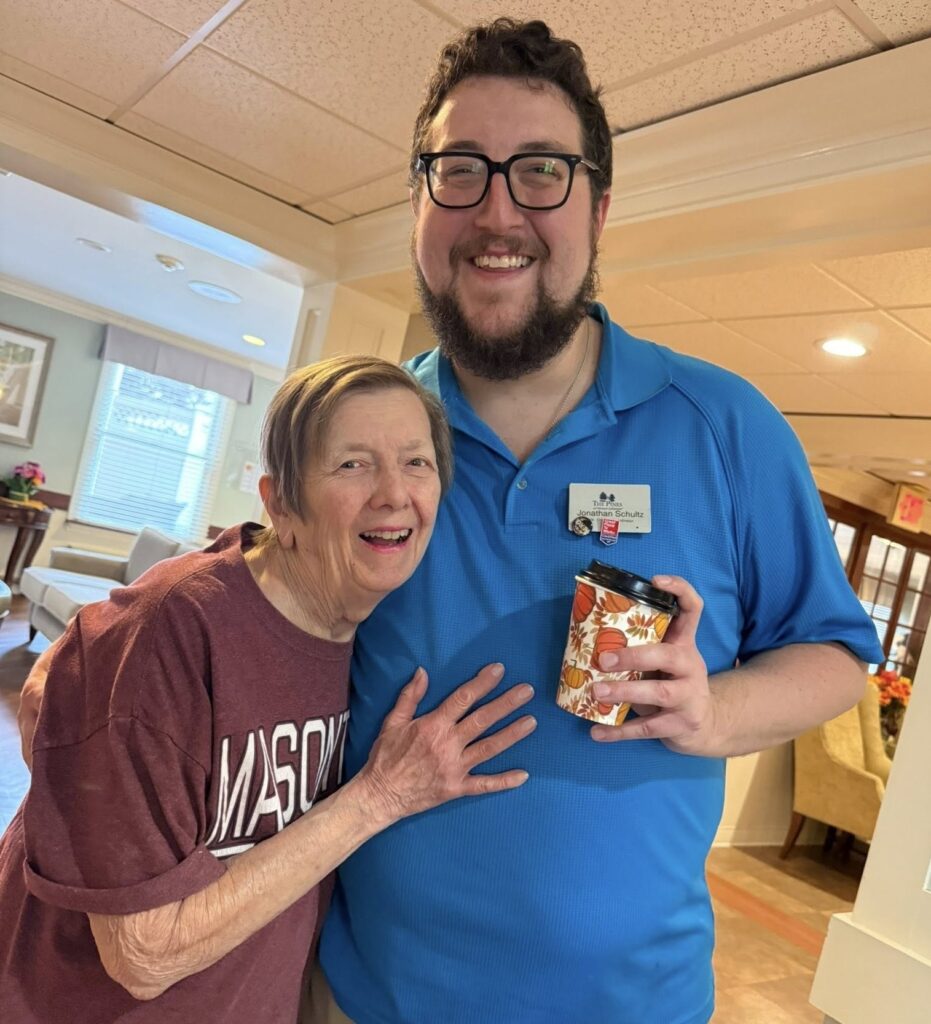The decision to move a parent into assisted living or memory care is never easy. It comes after months or years of caregiving, late nights, emergencies, and the emotional weight of watching someone you love lose their independence. When the moment finally comes, relief and guilt often arrive at the same time.
If you are feeling the guilt of putting a parent in assisted living, you are not alone. These emotions are deeply human, and they do not mean you failed your parent. They mean you care.
The emotional impact of putting a loved one in assisted living
The emotional impact of putting a loved one in a care home can be overwhelming. Some people describe resentment from the years of caregiving mixed with heartbreak over letting go. Others talk about questioning if they could have done more. It is natural to replay past choices in your mind.
But guilt often hides an important truth: you likely made this decision because you had already given everything you could. Assisted living is not about abandoning a parent. It is about making sure they receive the consistent care, safety, and support that one person alone cannot always provide.
Your needs matter too
Caregivers often sacrifice careers, relationships, and health to support their parents. Many push themselves until they collapse, physically or emotionally. That breaking point is often what makes assisted living necessary.
It is important to remember: your life and well-being matter just as much as your parents’. Choosing assisted living can be an act of care for both of you. It gives your parent trained professionals who can support their needs, and it gives you a chance to recover, rebuild, and continue being present in their life in healthier ways.
How to stay connected
One of the hardest parts after the transition to assisted living is figuring out how often you should visit your parent, but there isn’t a single right answer. Some families visit daily at first to help with adjustment. Others find that spacing out visits allows both parent and child to settle into new routines. What matters is finding a rhythm that supports your parent without exhausting you.
When you do visit, focus on quality over quantity. Bring familiar comforts, share a meal, or look through old photos together. Small moments of connection can mean more than hours of strained conversation.
Here are a few tips for visiting your dad or mom in assisted living:
- Keep visits positive and unrushed, even if they are short
- Bring new family pictures so they don’t feel left out
- If conversations are difficult, simply sitting together can be enough
Supporting from a distance
If you do not live nearby, you may wonder how to support a parent in assisted living from a distance, but luckily, we now have different ways to reach out. Phone or video calls, or even mailing handwritten notes can create meaningful contact. Many communities also welcome family input on care, so staying in touch with staff can keep you informed and reassured.
You might also consider creating a “comfort box” with books or family pictures that staff can share with your parent when you cannot be there. Even from afar, you can shape their environment with love.
Finding peace with your decision
Grief, guilt, and second-guessing may not vanish overnight, but with time, you’ll realize you can show up for your loved one in new and healthier ways once the heavy weight of daily caregiving is lifted. Therapy, support groups, or simply talking with others who have walked this path can help you process those emotions.
Moving a parent to assisted living is not a failure. It is an act of protection, one that recognizes both their needs and your limits. You do not stop being a caregiver when they move, you just change the way you care.
If you’re ready to help your parent transition to assisted living and looking for a senior community in Great Falls, Virginia, contact us at The Residence of Colvin Run and let us help you during this new phase.












